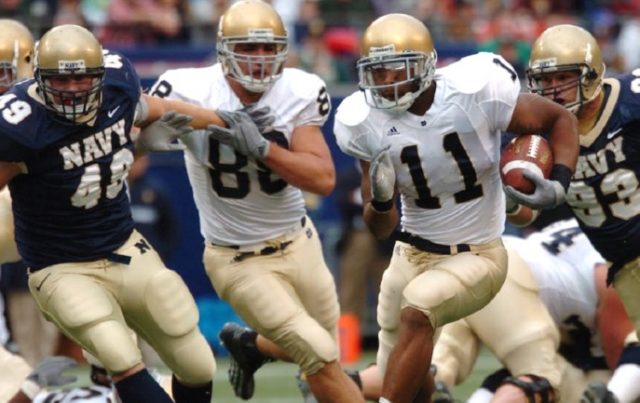Dive headfirst into the exhilarating world of Fantasy Football – an engaging and strategic virtual game that has captivated millions. In essence, Fantasy Football is a game where participants serve as general managers of virtual professional gridiron football teams. They build their football squad by participating in a draft where all relevant NFL players are available. Points are scored based on real-life performances of these players in actual games.
This blend of strategy, competition, and football knowledge has made Fantasy Football a beloved pastime, with over 59.3 million people in the U.S. and Canada playing fantasy sports annually, according to the Fantasy Sports & Gaming Association. Its addictive nature comes from the thrill of managing your team, the anticipation of the weekly matchups, and the satisfaction of victory. As we embark on this comprehensive beginner’s guide to your first season of Fantasy Football, you’ll learn why it isn’t just a game, it’s a season-long commitment that brings football fans closer to the sport they love.
Understanding Fantasy Football
Fantasy Football is an immersive, strategic game that allows fans to engage with professional football on a deeper level. At its core, it’s a virtual platform where you craft your team of real-life NFL players and compete against other participants in a league. The performance of your fantasy team is dictated by the actual statistical performances of your chosen players in their NFL games. Points are awarded based on various criteria such as touchdowns scored, yards gained, field goals, and more.
The competition aspect comes into play as participants’ teams face off against each other in weekly matchups within a league. These leagues can vary in size and structure, adding a layer of complexity to the game. Drafting your initial team, trading players throughout the season, and setting your lineup each week require strategic decision-making, making it not just about football knowledge but also managerial acumen.
Popular platforms like ESPN Fantasy Football, Yahoo Fantasy Sports, and NFL Fantasy allow users to participate in this engaging game. They provide comprehensive tracking of player statistics, and league standings, and offer tools for drafting and trading players. Through Fantasy Football, every NFL game becomes a potential point-scoring opportunity for your team, heightening the excitement of the football season.
Choosing a Fantasy Football League
Selecting the right Fantasy Football League is a crucial first step in your journey. Different types of leagues cater to different styles and commitment levels. Standard leagues are the most common, offering a balanced and straightforward experience. Keeper leagues allow you to retain a few players for the following season, adding a layer of continuity. Dynasty leagues take this a step further, letting you keep your entire roster year after year, mimicking the role of a real NFL general manager. Daily Fantasy leagues condense the action into single-day or weekend contests, ideal for those seeking instant gratification.
Before joining a league, consider factors such as time commitment, league size, player pool, and the complexity of the rules. Larger leagues with more teams demand a deeper knowledge of player rankings, while smaller leagues might require less time but more strategy. The scoring system is another essential aspect to assess, as it can significantly impact your drafting strategies. For instance, in Point Per Reception (PPR) leagues, wide receivers who see a lot of targets gain more value.
Draft styles also vary from league to league. While some use a snake draft, where the order reverses each round, others might employ an auction draft, where you bid on players with a limited budget. Finding a league that matches your skill level can be challenging but is vital for a competitive and enjoyable experience. Whether you’re a beginner getting your feet wet or a seasoned pro looking for a serious commitment, there’s a Fantasy Football league out there to suit your needs.
Drafting Your Team
The draft is indeed a cornerstone event in fantasy football. It’s the foundation upon which your team is built and can significantly influence your season’s fortunes. To navigate the draft successfully, you need a well-thought-out strategy that combines thorough research, an understanding of your league’s scoring system, adaptability, and forward-thinking.
Preparation is paramount. Equip yourself with a comprehensive understanding of each player’s statistics, their strengths, and weaknesses. This knowledge will be your guiding light when choosing between players during the draft. It’s also crucial to understand your league’s scoring format thoroughly. The value of certain positions or player types can fluctuate depending on whether your league uses standard, PPR (Point per Reception), or some other scoring format. Tailor your strategy to align with these specifics.
Flexibility is another essential aspect of a successful draft. Despite the best-laid plans, other managers might snap up your targeted players, or pre-season injuries could suddenly make a player less desirable. The ability to pivot your strategy in response to such events is a crucial skill that can help you avoid panic picks and keep your draft on track.
Managing Your Team
Navigating a fantasy football season successfully requires strategic planning, effective communication, and adaptability. Communication is crucial, especially if you’re in a league with friends or colleagues. Keep an open dialogue about potential trades, waivers, and other league matters.
Begin the season by setting clear goals and expectations for your team. This includes formulating a game plan for each week based on matchups, player health, and other factors. Be proactive and stay on top of the latest news, as this can drastically affect your strategy.
Dealing with injuries and underperforming players is an inevitable part of the season. When faced with such challenges, don’t panic. Instead, assess your options on the waiver wire or through trades. It’s crucial to be flexible and willing to adjust your lineup based on performance and matchups.
Making trades can significantly impact your team’s success. When considering a trade, look beyond just the big names. Analyze player stats, their schedule strength, and their recent performance. A good trade is not always about getting the best player, but about improving your team overall.
Scoring in Fantasy Football
Scoring is the heart of fantasy football, dictating how points are allocated to players based on their real-world performances. In a typical setup, players can earn points through passing yards, rushing yards, receiving yards, touchdowns, and more. For instance, every 25 passing yards might award one point to a quarterback, while every 10 rushing or receiving yards does the same for running backs and wide receivers. Touchdowns usually grant six points.
However, scoring can significantly vary depending on your league’s rules and settings. Two of the most common scoring methods are standard and PPR (Points Per Reception).
In standard scoring, players earn points based on the yardage they gain and the touchdowns they score. This method emphasizes big plays and touchdowns, meaning players who can break off long runs or catches, or frequently find the end zone, are highly valuable.
On the other hand, PPR leagues add a twist: players earn additional points for each reception made, usually one point per catch. This scoring method boosts the value of players who catch a lot of passes, even if they might not gain many yards or score many touchdowns. As a result, PPR scoring often favors running backs and wide receivers who are heavily involved in the passing game and can make a significant impact even without breaking big plays.
Each scoring method has its pros and cons. Standard scoring can lead to high-variance outcomes and excitement as big plays and touchdowns hold more weight. Conversely, PPR scoring can reward consistency and provide a more balanced playing field as it gives value to players who might not be big-play threats but are consistently involved in their team’s offense.
The choice between standard and PPR scoring affects player rankings and draft strategies. Players with high reception totals see their value increase in PPR leagues, which should be taken into account during your draft. The scoring system also influences the competitiveness of your league by potentially creating a larger pool of valuable players in PPR leagues. Understanding these differences is key to drafting a successful team and making effective in-season management decisions.
Tips and Strategies for Success
Stepping into the world of Fantasy Football can be both exciting and overwhelming. As a beginner, it’s crucial to approach the game with strategic planning and informed decision-making. Start by focusing on your draft – this is where your team’s foundation is built. Aim to secure a balanced team with reliable running backs and wide receivers early in the draft, as they are typically the highest-scoring positions. Don’t overlook the importance of a strong quarterback or tight end but remember that you can often find value in these positions in the later rounds.
Managing your team throughout the season is equally important. Stay informed about player injuries, performance trends, and potential breakout stars. Use this knowledge to make critical decisions regarding trades and free-agent pickups. Don’t be afraid to take calculated risks – sometimes, a bold move can pay off in a big way.
However, avoid common pitfalls that can derail your success. Overindulging on star players without considering their current form, injury status, or team context can lead to disappointment. Maintain discipline in managing your team; regular lineup adjustments and active participation in the waiver wire can give you a competitive edge. Never underestimate your opponents, and always prepare for each matchup as if it’s a championship game.
Lastly, do your research. There are countless resources available online that provide player rankings, matchup analysis, and expert advice. Use these tools to make informed decisions and stay ahead of the competition.
Remember, Fantasy Football is a game of strategy, patience, and adaptability. It’s not just about having the best players, but about making the right moves at the right times










